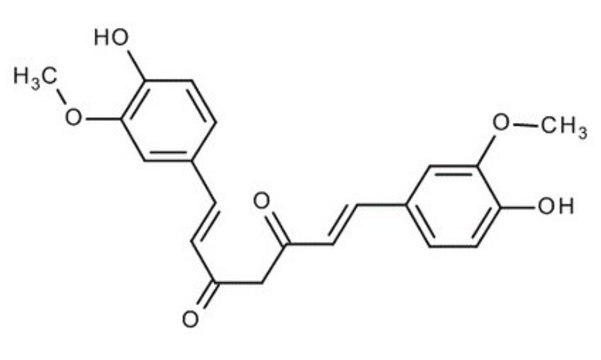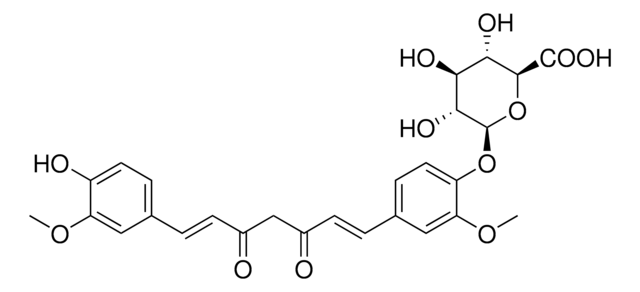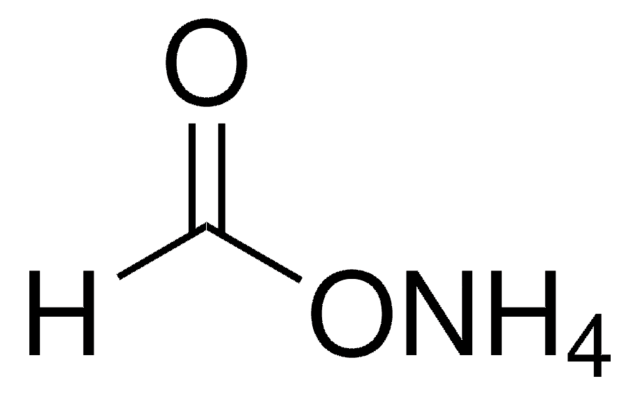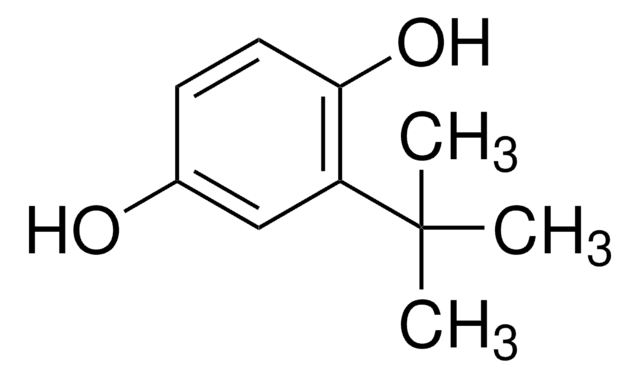SMB00370
Tetrahydrocurcumin
≥96% (HPLC)
Synonym(s):
Tetrahydrocurcumin, 1,7-bis(4-hydroxy-3-methoxyphenyl)-3,5-heptanedione, HZIV 81-2, NSC687845, Tetrahydrodiferuloylmethane, 1,7-Bis(4-hydroxy-3-methoxyphenyl)-3,5-heptanedione
About This Item
Recommended Products
Quality Level
assay
≥96% (HPLC)
form
powder
application(s)
metabolomics
vitamins, nutraceuticals, and natural products
storage temp.
−20°C
SMILES string
COc1cc(CCC(=O)CC(=O)CCc2ccc(O)c(OC)c2)ccc1O
InChI
1S/C21H24O6/c1-26-20-11-14(5-9-18(20)24)3-7-16(22)13-17(23)8-4-15-6-10-19(25)21(12-15)27-2/h5-6,9-12,24-25H,3-4,7-8,13H2,1-2H3
InChI key
LBTVHXHERHESKG-UHFFFAOYSA-N
Looking for similar products? Visit Product Comparison Guide
Related Categories
General description
Application
Biochem/physiol Actions
Storage Class
11 - Combustible Solids
wgk_germany
WGK 3
flash_point_f
385.2 °F
flash_point_c
196.2 °C
Certificates of Analysis (COA)
Search for Certificates of Analysis (COA) by entering the products Lot/Batch Number. Lot and Batch Numbers can be found on a product’s label following the words ‘Lot’ or ‘Batch’.
Already Own This Product?
Find documentation for the products that you have recently purchased in the Document Library.
Customers Also Viewed
Our team of scientists has experience in all areas of research including Life Science, Material Science, Chemical Synthesis, Chromatography, Analytical and many others.
Contact Technical Service









